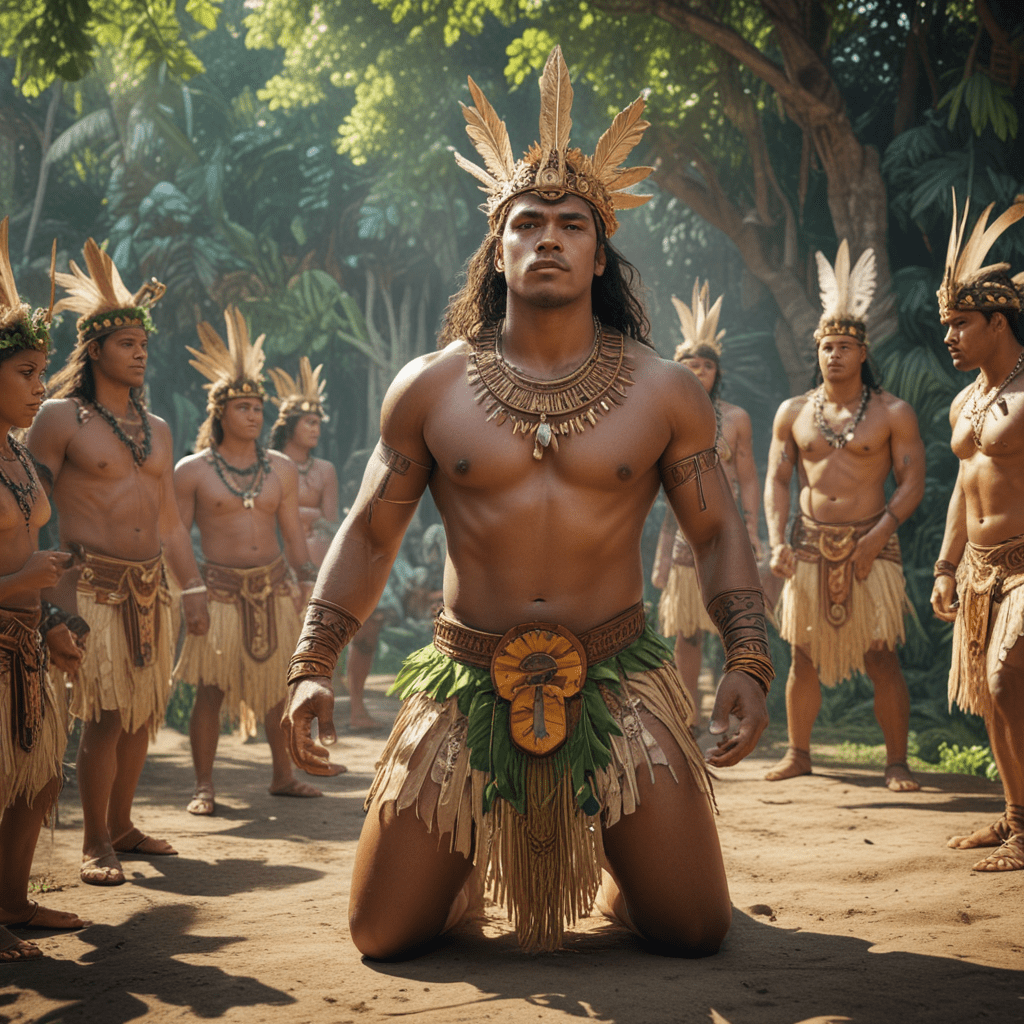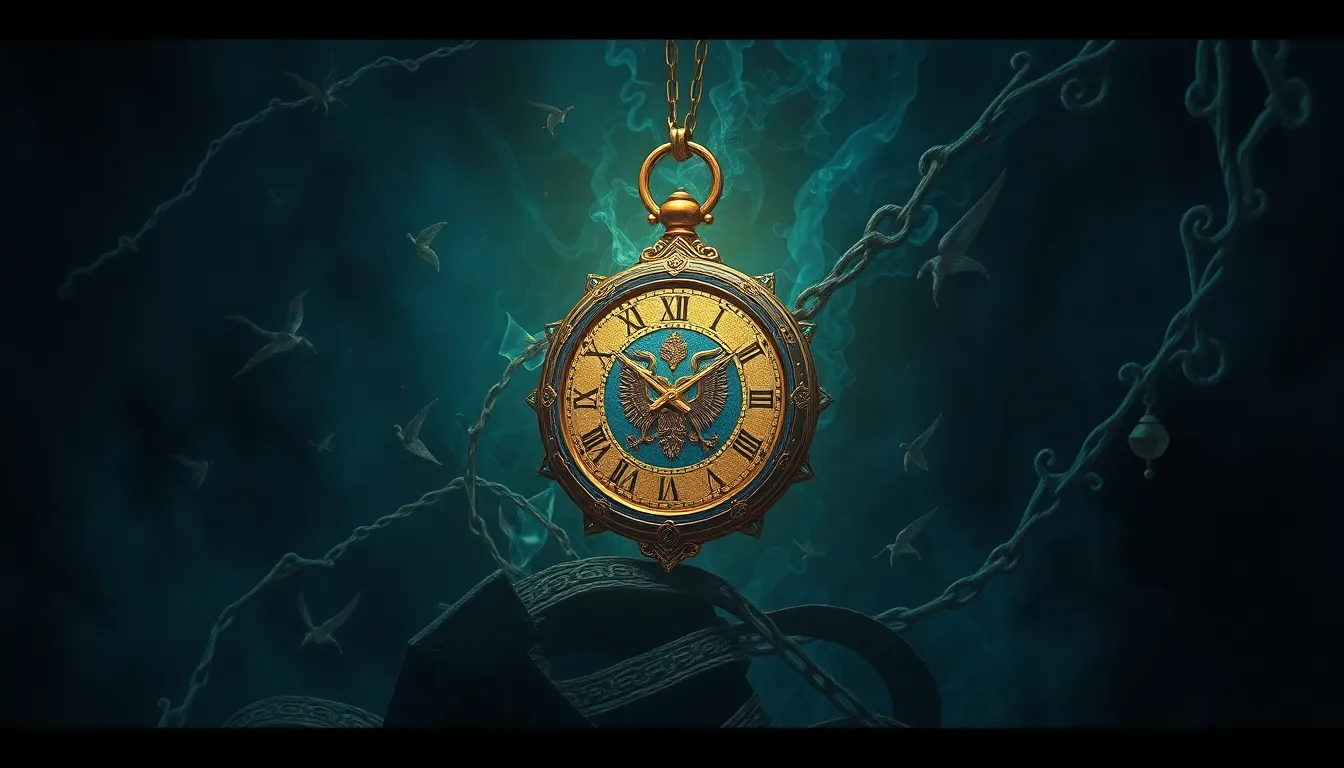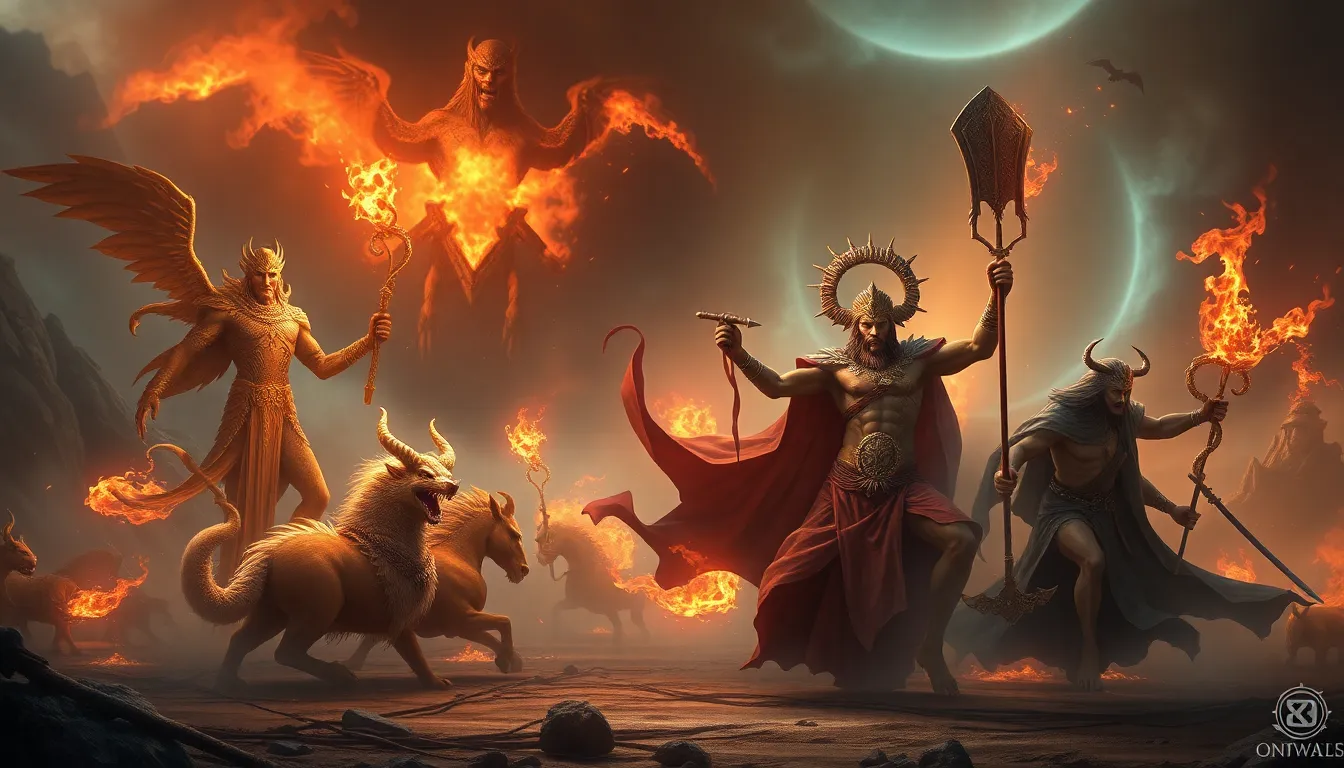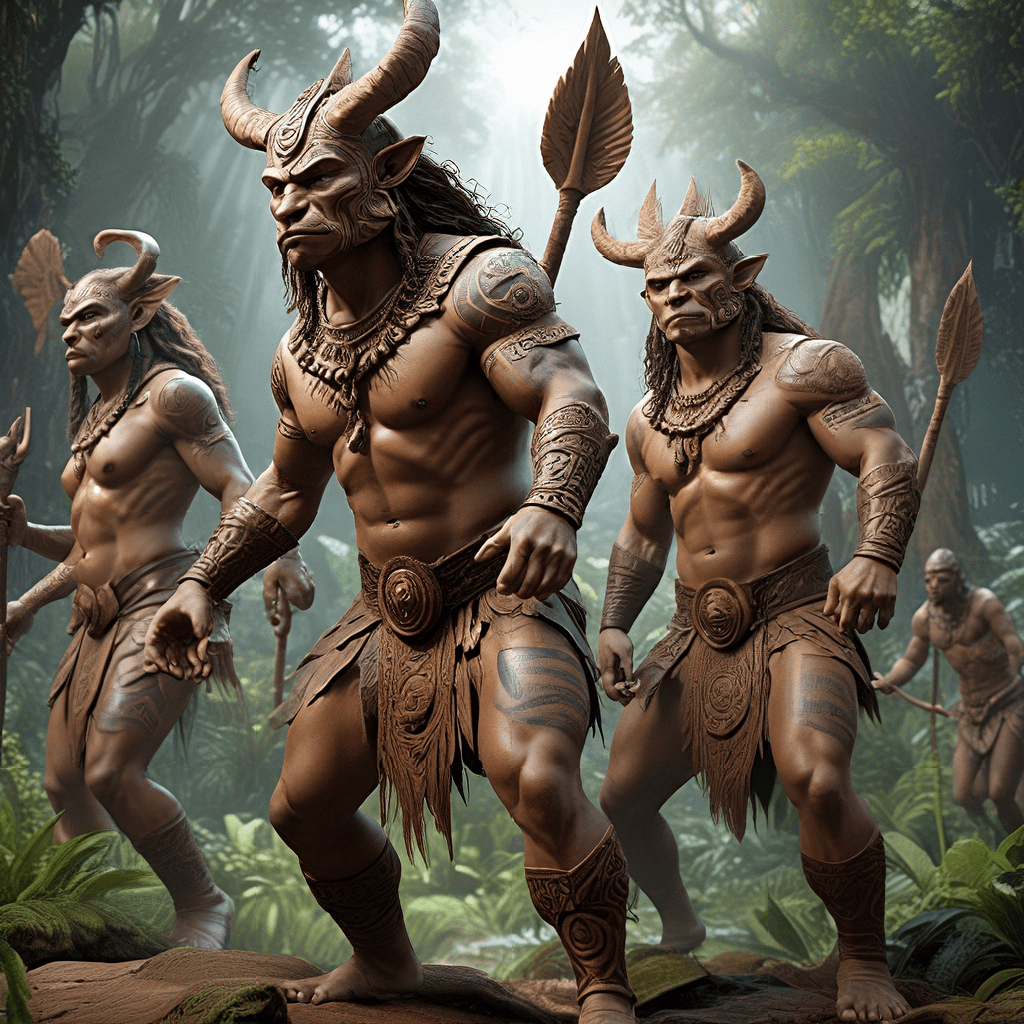Rituals and Ceremonies in Polynesian Mythology
Polynesian mythology is a rich and diverse tapestry of legends, myths, and traditions that have been passed down through generations. At the heart of this mythology lies a profound reverence for rituals and ceremonies, which play a vital role in Polynesian culture and spirituality.
1. Overview of Polynesian Mythology
Polynesian mythology encompasses the beliefs and practices of the indigenous peoples of the Polynesian islands, which span the vast expanse of the Pacific Ocean. These islands include Hawaii, New Zealand, Samoa, Tonga, and Tahiti, among others. Polynesian mythology shares many common themes and motifs, including the creation of the world, the adventures of gods and heroes, and the importance of ancestors and the natural world.
2. The Importance of Rituals and Ceremonies
Rituals and ceremonies hold immense significance in Polynesian mythology and culture. They serve as a means to connect with the gods, honor ancestors, and mark important life events. Through these practices, Polynesians express their reverence for the sacred and maintain a harmonious relationship with their environment. Rituals and ceremonies provide a sense of continuity and stability within Polynesian communities, reinforcing cultural values and traditions.
3. Birth and Naming Rituals
The birth of a child is a joyous occasion in Polynesian culture. Elaborate rituals and ceremonies accompany the arrival of a new life, including the cutting of the umbilical cord, the bestowing of a name, and the تقديم of gifts. These rituals ensure the well-being of the infant and symbolize the child's integration into the community.
4. Marriage and Wedding Ceremonies
Marriage is a sacred union in Polynesian mythology. Wedding ceremonies vary among different islands, but they share common elements such as the exchange of gifts, the recitation of vows, and the blessing of the couple by a priest or elder. These ceremonies celebrate the love and commitment between two individuals while also invoking the protection and guidance of the gods.
5. Death and Funeral Rites
Death is a significant event in Polynesian mythology, and elaborate funeral rites are performed to honor the deceased and ensure their safe passage to the afterlife. These rites include the preparation of the body, the building of a tomb or burial site, and the performance of mourning rituals. Through these practices, Polynesians pay their respects to the departed and seek to maintain a connection with their ancestors.
6. Religious Ceremonies and Festivals
Polynesian mythology is deeply intertwined with religion, and rituals and ceremonies play a central role in religious practices. Elaborate ceremonies are held to honor the gods, celebrate religious festivals, and commemorate significant events. These rituals include prayers, chants, offerings of food and drink, and performances of traditional dances and music. They provide a means for Polynesians to express their devotion and strengthen their connection to the divine realm.
7. Rites of Passage and Initiation
Rites of passage are significant ceremonies that mark the transition of an individual from one stage of life to another. In Polynesian cultures, these rites often involve physical ordeals, tests of courage, and spiritual guidance. Through these rituals, young people are initiated into adulthood, assuming new roles and responsibilities within the community. These ceremonies symbolize the individual's journey towards maturity and their integration into the social and cultural fabric of their people.
8. Healing Rituals and Practices
Polynesian mythology recognizes the power of rituals and ceremonies in healing and restoring balance. Traditional healers known as kahuna possess extensive knowledge of medicinal plants and natural remedies. Healing rituals often involve chants, prayers, massages, and the application of traditional medicines. They aim to address both physical and spiritual ailments, promoting overall well-being and harmony within the individual.
9. Rituals of War and Conquest
In Polynesian mythology, war and conquest were significant aspects of cultural life. Warriors engaged in elaborate rituals before battles to ensure success and protection from harm. These rituals included invoking the gods for assistance, performing special chants and dances, and preparing weapons with sacred incantations. After victorious battles, rituals of conquest were conducted to establish dominance and maintain control over conquered territories.
10. The Role of Ritual and Ceremony in Polynesian Culture
Rituals and ceremonies are an integral part of Polynesian culture. They provide a framework for organizing social life, reinforcing cultural values, and connecting with the sacred. Through these practices, Polynesians maintain a deep connection to their heritage and traditions while navigating the challenges and joys of life. Rituals and ceremonies serve as a bridge between generations, ensuring the preservation and transmission of Polynesian mythology and cultural knowledge for centuries to come.
FAQs
Q: What is the significance of rituals and ceremonies in Polynesian mythology?
A: Rituals and ceremonies play a vital role in Polynesian mythology, as they connect with the gods, honor ancestors, mark important life events, and reinforce cultural values.
Q: What are some common birth rituals in Polynesian cultures?
A: Birth rituals include cutting the umbilical cord, bestowing a name, and presenting gifts to ensure the infant's well-being and integration into the community.
Q: How do Polynesian wedding ceremonies differ among different islands?
A: While wedding ceremonies vary across Polynesian islands, they share common elements such as gift exchanges, the recitation of vows, and blessings from elders or priests.
Q: What is the importance of funeral rites in Polynesian mythology?
A: Funeral rites honor the deceased, ensure their safe passage to the afterlife, and pay respects to the departed ancestors. They reinforce the connection between the living and the dead.



